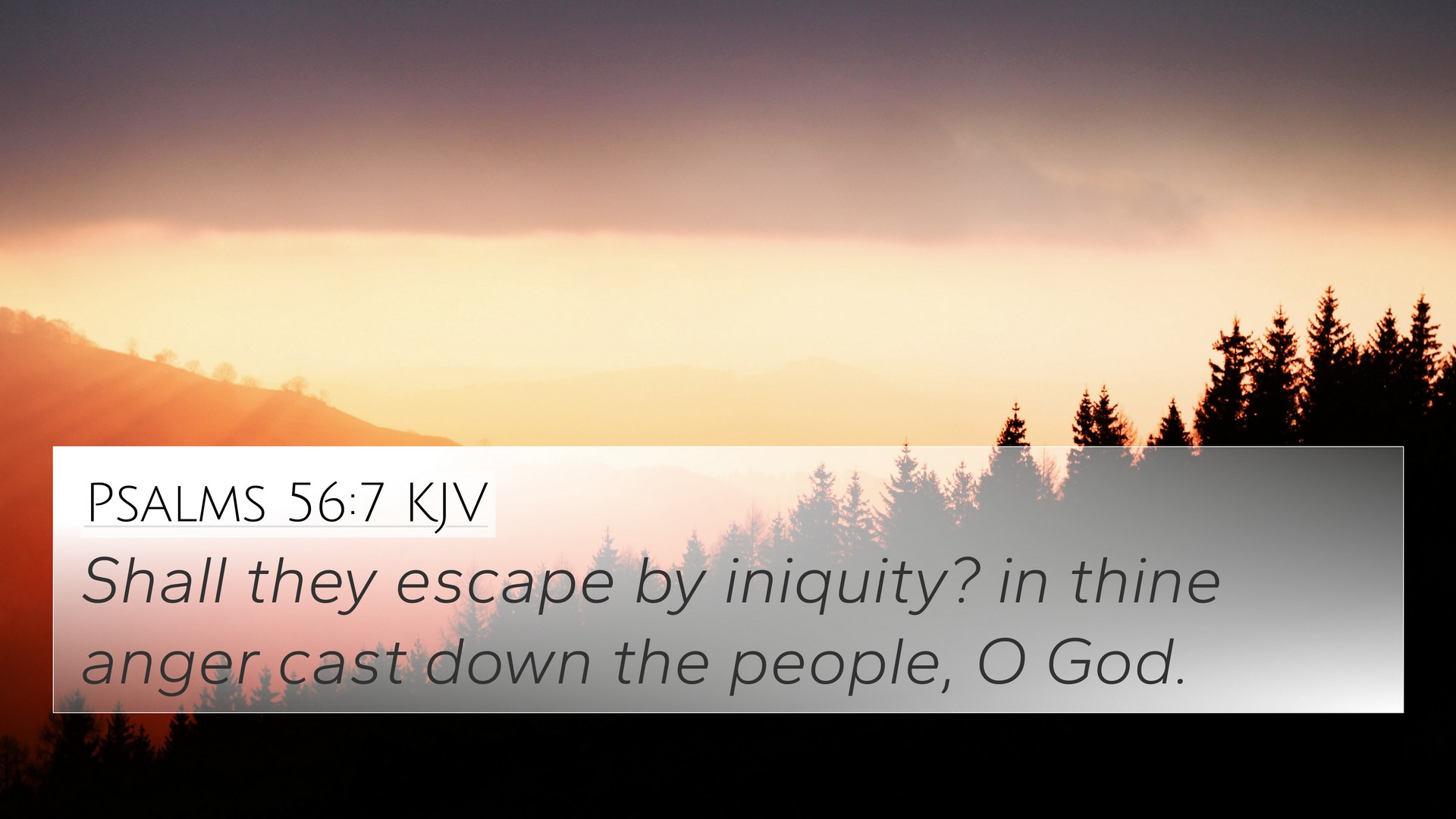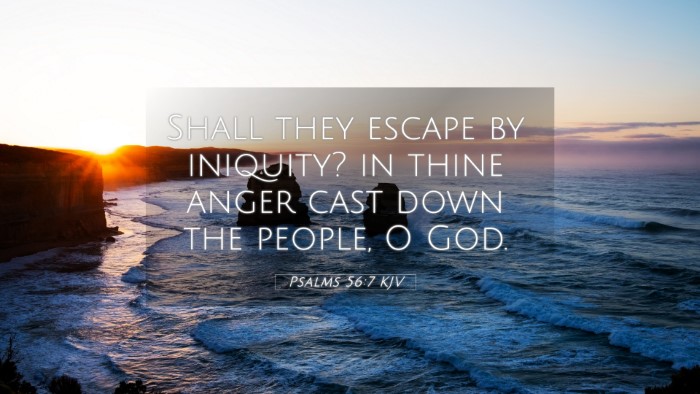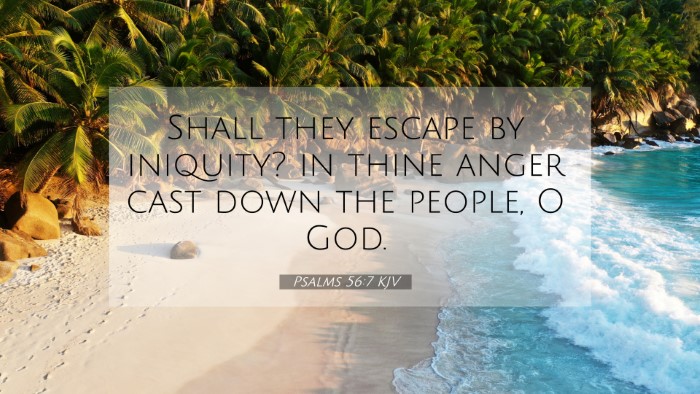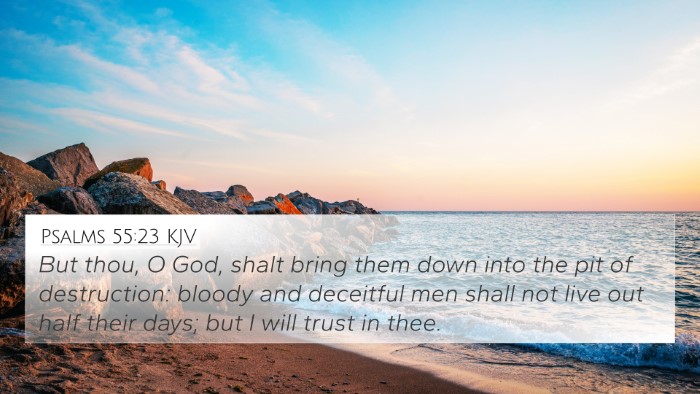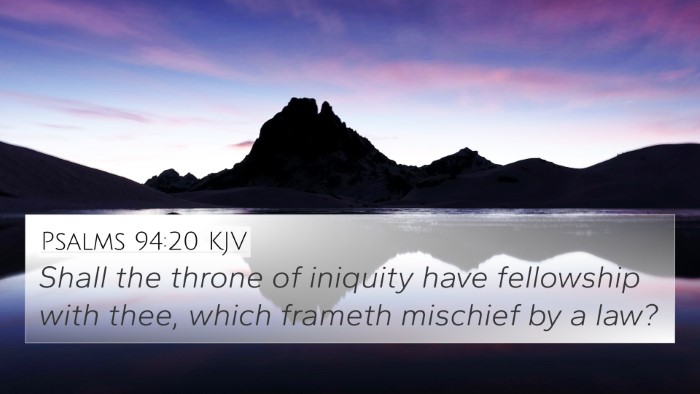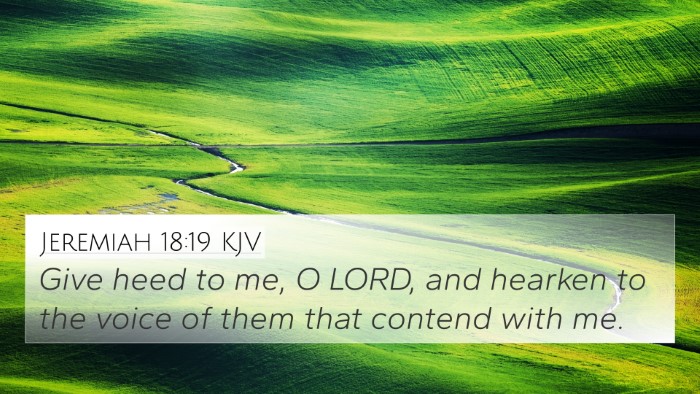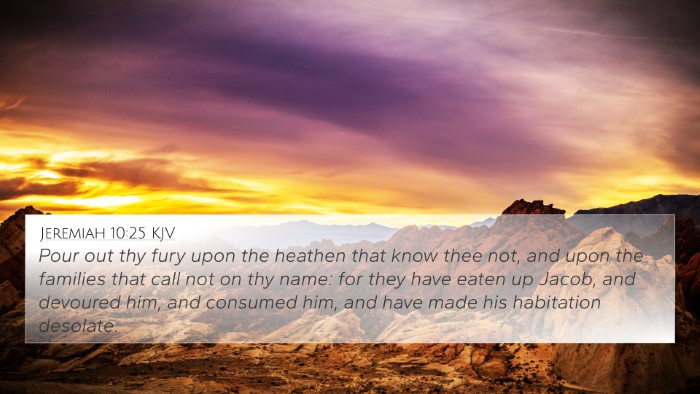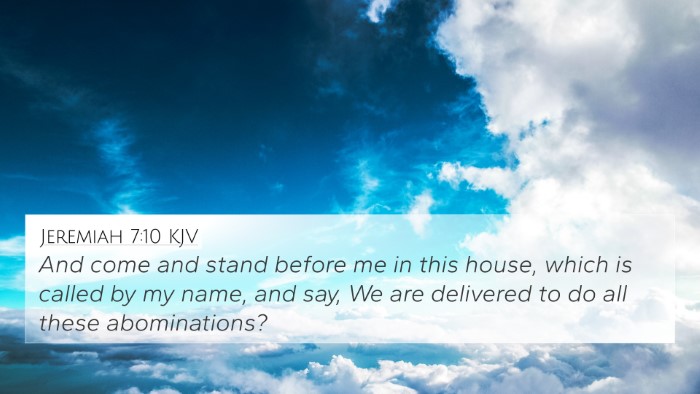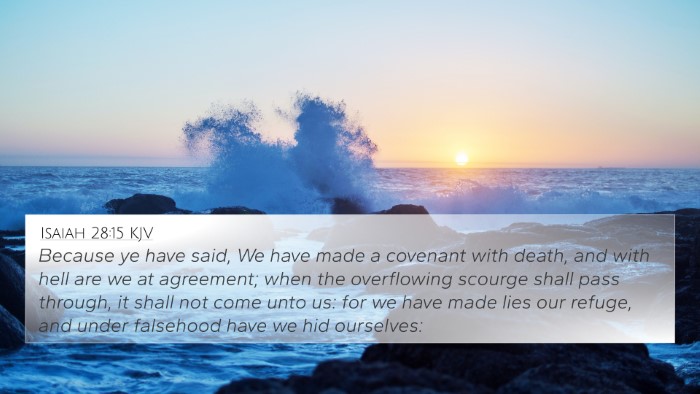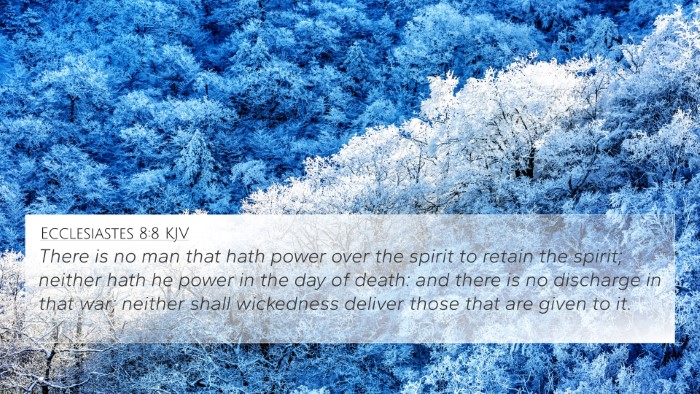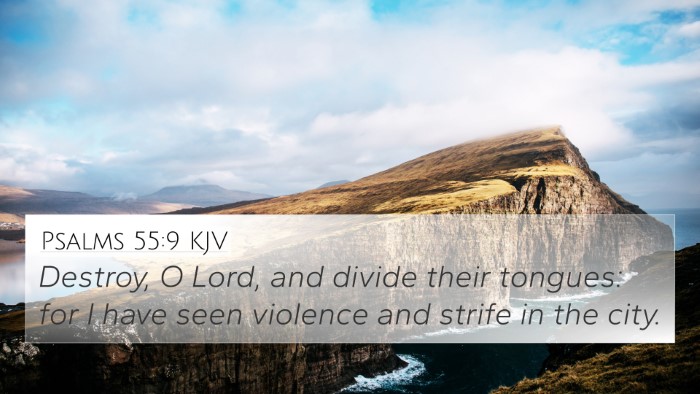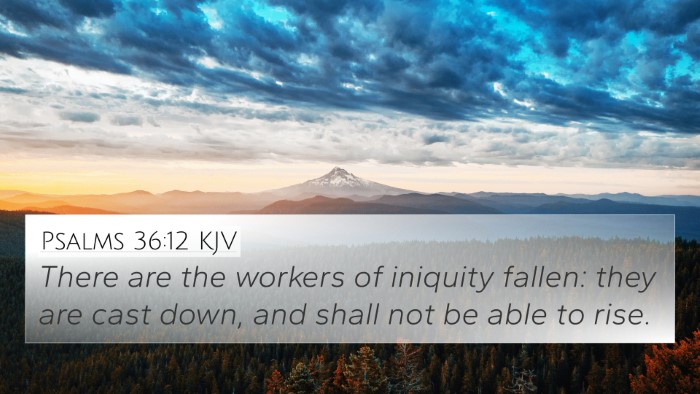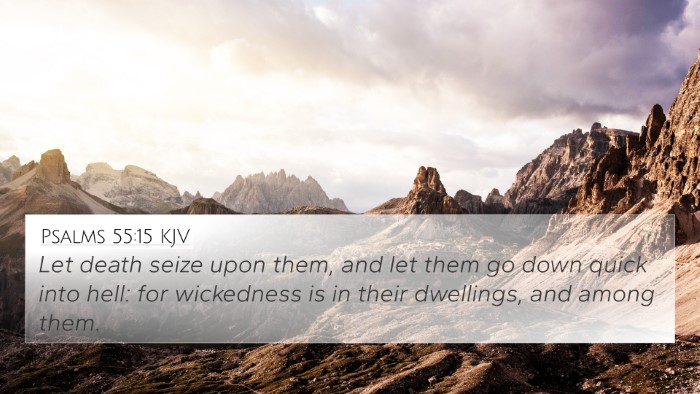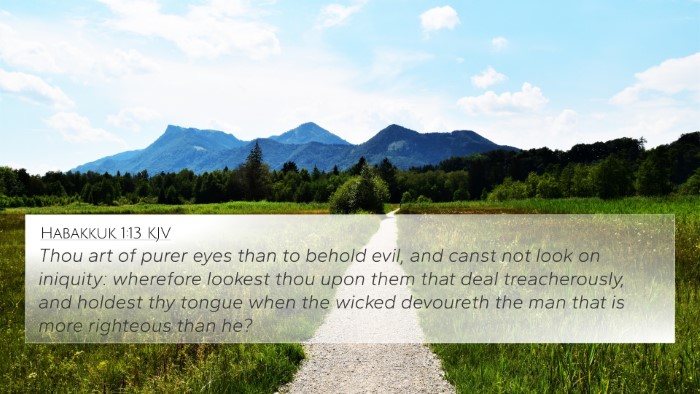Psalm 56:7 - Summarized Meaning and Insights
Bible Verse: "Shall they escape by iniquity? In thine anger cast down the people, O God." (Psalm 56:7)
Understanding Psalm 56:7
This verse emerges as a poignant plea within the overarching theme of trust in God amid adversity and oppression. The psalmist, likely David, expresses a deep reliance on divine justice while grappling with the treachery and iniquity of his enemies.
Insights from Public Domain Commentaries
Different scholars provide relevant interpretations that help in understanding the nuances of this verse:
Matthew Henry's Commentary
Henry emphasizes the notion of God's righteous anger against sin. He interprets the question of whether the wicked shall escape punishment as a rhetorical device, affirming that they will not. The psalmist's invocation of God's wrath against the wrongdoers underlines the contrast between the justice of God and the malice of his enemies.
Albert Barnes' Notes
Barnes focuses on the historical context, observing that David faced severe threats during his life, notably from Saul and the Philistines. This verse encapsulates David's earnest cry for justice against those who commit iniquity, highlighting his faith in God's ability to uphold righteousness even amid human treachery.
Adam Clarke's Commentary
Clarke notes that the phrasing implies a dependence on God's intervention. He suggests that the psalmist acknowledges the power of God to bring down the wicked. Clarke also reflects on the emotional intensity of the verse, as the psalmist shifts from fear to a confident assertion of God's ultimate triumph over evil.
Thematic Bible Verse Connections
This verse can be linked to numerous others that echo similar themes of seeking God’s justice and dealing with evil:
- Psalm 37:28: "For the Lord loves justice and does not forsake His saints; they are preserved forever, but the descendants of the wicked shall be cut off."
- Job 31:3: "Is not destruction for the wicked, and disaster for the workers of iniquity?"
- Isaiah 26:10: "Though grace is shown to the wicked, they do not learn righteousness; even in a land of uprightness they go on doing evil."
- Romans 12:19: "Beloved, do not avenge yourselves, but rather give place to wrath; for it is written, 'Vengeance is Mine, I will repay,' says the Lord."
- Revelation 21:8: "But the cowardly, unbelieving, abominable, murderers, sexually immoral, sorcerers, idolaters, and all liars shall have their part in the lake which burns with fire and brimstone, which is the second death."
- Micah 7:9: "I will bear the indignation of the Lord because I have sinned against Him, until He pleads my case and executes justice for me."
- Proverbs 11:21: "Though they join forces, the wicked will not go unpunished; but the posterity of the righteous will be delivered."
Cross-Referencing Biblical Texts
This verse serves as a fulcrum for understanding inter-Biblical dialogues concerning justice vs. iniquity. This comparative Bible verse analysis allows for a deeper insight into how various scriptures coalesce around the theme of divine intervention and justice:
- The Psalms: Many psalms express a similar yearning for divine justice, creating thematic parallels.
- The Prophets: Books such as Isaiah and Jeremiah discuss the consequences of sin and the faithfulness of God to His promises.
- The Gospels: Reflect on Christ’s teaching about justice, mercy, and the coming judgment, drawing lines back to the Old Testament ethos.
Tools for Bible Cross-Referencing
Understanding cross-references can enrich one’s study of scripture. Here are some tools and methods:
- Using a Bible concordance helps to identify related terms and themes across scriptures.
- A Bible cross-reference guide allows for quick verse linking based on similarities and shared themes.
- Cross-reference Bible study methods offer structured approaches to explore interconnected verses.
- Bible chain references can provide quick access to related verses while studying a specific topic.
Conclusion
Psalm 56:7 serves as a reminder of the inevitability of God's justice, especially in the face of human iniquity. Through inter-Biblical connections and thematic explorations, one can find profound understandings of how this verse resonates throughout scripture. This further emphasizes God's character as righteous, just, and faithful to His people.
Remember: For those engaging in Bible study, consider utilizing cross-referencing methods to deepen your understanding. Exploring the linked texts can illuminate the rich tapestry of God's Word, revealing His purposes throughout both the Old and New Testaments.
